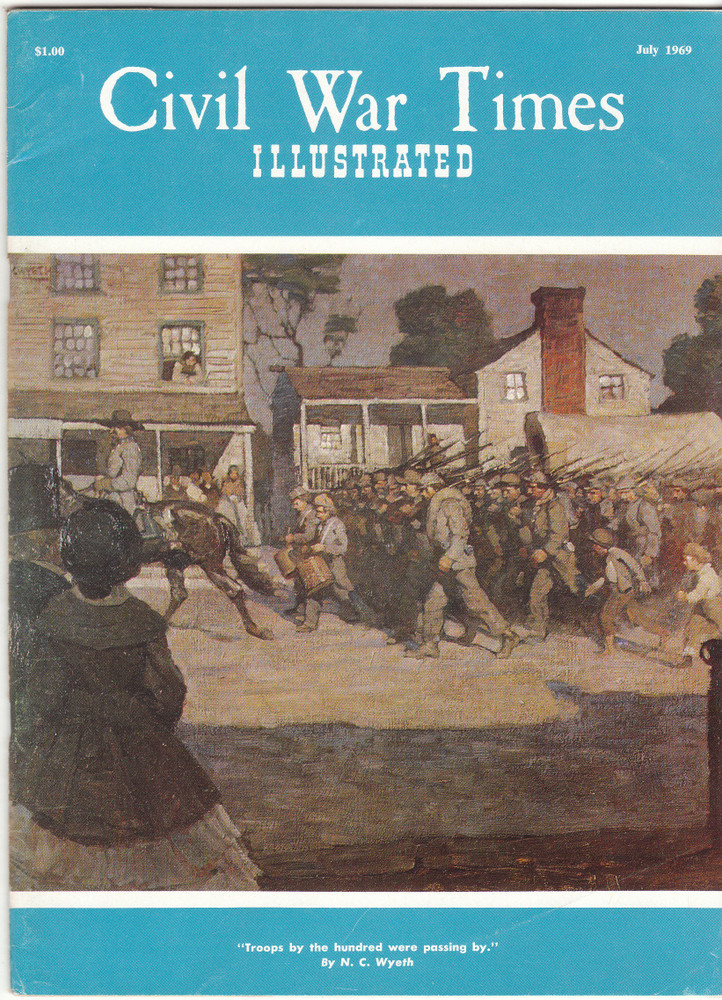THE END OF AN ERA
The Civil War community is still in shock and cloaked in black in its collective effort to grasp and contextualize the recent news that the parent company of "Civil War Times" and "America’s Civil War" magazines has terminated their publication, along with many other history-related periodicals.
What does all this mean?
"Civil War Times" (which I still think of as "Civil War Times, Illustrated," or simply CWTI) began in the late 1950s in a newspaper format in anticipation of the Centennial. If memory serves, it switched to a magazine format in 1962.
I subscribed in junior high school in 1973 after reading Freeman's "Lee's Lieutenants" and a dozen other books. (There is a magazine!?). I read each issue cover to cover, scoured the book ads, and learned there was an entire world out there I could explore. I was so smitten that I determined then and there to build a library that would one day grow to 2,000+ volumes, and maybe one day write articles and books!
Who knew.
Circulations exploded, new publishers and authors came into the market, Civil War Round Tables sprouted in every state. And now, the magazine that arguably helped launch it all . . . has seen its last issue.
Many people have written to ask WHY? I don't have any inside information, but I have been in the publishing business for more than three decades.
I think the answer that is probably the most correct is that technology and the delivery of information have changed dramatically, and prices and production costs have increased. Those lines crossed. The business model is no longer profitable. It is that simple.
The editors and staff writers of these magazines -- Dana Shoaf, Chris Howland, Richard Holloway, and others -- did outstanding work for many years laboring in the Civil War vineyard. They have solidified their standing in this arena. Thank you, gentlemen.
Is interest waning? In a word, NO. In fact, interest in the Civil War is increasing and a new generation of younger readers is discovering the conflict. Our data confirms this on every level.
But the loss of the magazines is a cautionary tale every student of the Civil War should understand.
There are many ways and many places to satisfy your fix for this niche information. But if you don't DIRECTLY support the people and the companies producing the information, the sources will dry up and blow away like dust in the wind.
Think of all the small boutique publishers in this arena who are no longer with us. Technology and flawed business models eliminated them from the marketplace. It is a cruel environment and a harsh one in which to operate.
The big NY publishers are not going to step into the breach. Wikipedia and blogs can only go so far.
This is why one of my overarching goals has been to enhance and grow the "community." We must support one another, spread our interest, and educate.
These magazines are the canaries in the coal mind. Take heed.
Theodore P. Savas
www.savasbeatie.com

